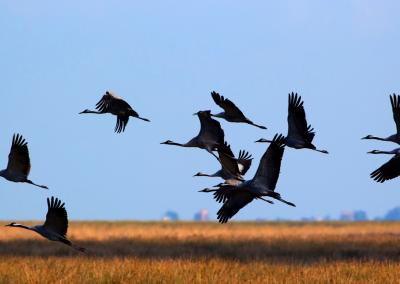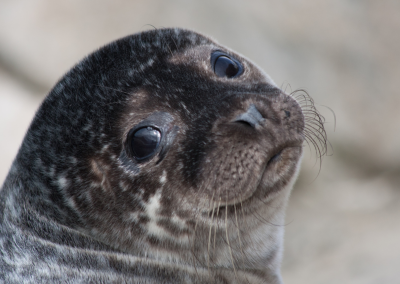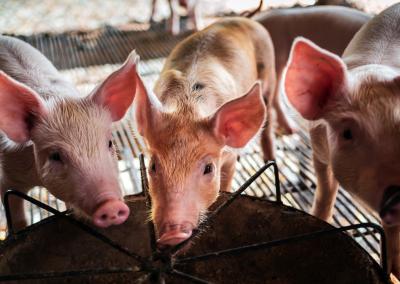What can help prevent outbreaks of avian influenza?
The epidemiological situation in Europe has become extremely tense in recent weeks due to the rapid spread of highly pathogenic highly pathogenic bird flu (HPAI), which has already affected 25 poultry holdings in seven EU countries. More than 1.5 million poultry have been destroyed on farms due to this aggressively spreading virus. Continuous prevention is essential to prevent major outbreaks of this disease, and the implementation of biosecurity measures in poultry holdings and enhanced monitoring of wild and domestic poultry remain the most important tools to prevent the spread of the disease.
Veterinary experts in EU countries are concerned that HPAI outbreaks are being recorded this year in countries where the virus has not been detected this year in wild birds. This certainly raises questions about the effectiveness of the existing preventive monitoring, which should ensure early detection and prevent further spread of the virus.
Ineffective surveillance increases the risk of the virus spreading
Specialists believe that inadequate surveillance of wild birds in their congregation areas could lead to the spread of HPAI outbreaks to poultry, which could result in serious losses for the poultry sector.
Detection of the virus primarily in wild birds is crucial to manage information on the HPAI situation in the wild and to inform poultry keepers of the threats in time to help prevent the spread of the disease to poultry farms. EU legislation provides for specific disease control measures that should be implemented immediately in the event of an outbreak, through the establishment of protection and surveillance zones and the reinforcement of biosecurity measures on farms. However, practice has shown that in some poultry holdings in Europe, preventive measures have not been sufficient to prevent the spread of the disease to other holdings.
A comprehensive and effective monitoring system is needed
In order to prevent the spread of the virus, according to veterinary experts, it is necessary to continue both active and passive monitoring of wild birds in their assembly areas and in poultry housing. Particular attention must be paid to the monitoring of migratory wild waterbirds, which are the main carriers and spreaders of avian influenza virus in the wild. It is also important not to ignore the potential threat of the virus spreading among predatory mammals.
Enhanced biosecurity is needed in Lithuania
The HPAI points out that, in the light of the epidemiological situation in Europe, it is also necessary for the Lithuanian poultry farming sector to assess the effectiveness of the implementation of biosecurity requirements during this period and, if necessary, to reinforce the application of such requirements in order to prevent the possible spread of HPAI virus. This is a key barrier that can protect poultry from a devastating disease.
During the most active migration period for transient birds, birds should be kept indoors as the risk always remains, especially near open water bodies where birds migrate and can pass the virus in faeces, contaminate water or through feed stored outdoors. It is hoped that awareness among poultry farmers and keepers will help to prevent outbreaks of this highly pathogenic virus in Lithuania.
International competitiveness and stability of the poultry sector
Biosecurity, as a key preventive measure, not only significantly reduces the risk of HPAI affecting the Lithuanian poultry sector, but also protects the country's exports. Each outbreak has a direct impact on the poultry sector and the ability of companies to compete on the international market. Therefore, the HPAI urges the country's poultry businesses to pay more attention to the implementation of biosecurity requirements and, where possible, to implement additional protective measures during this active period of HPAI virus in Europe.














































































































